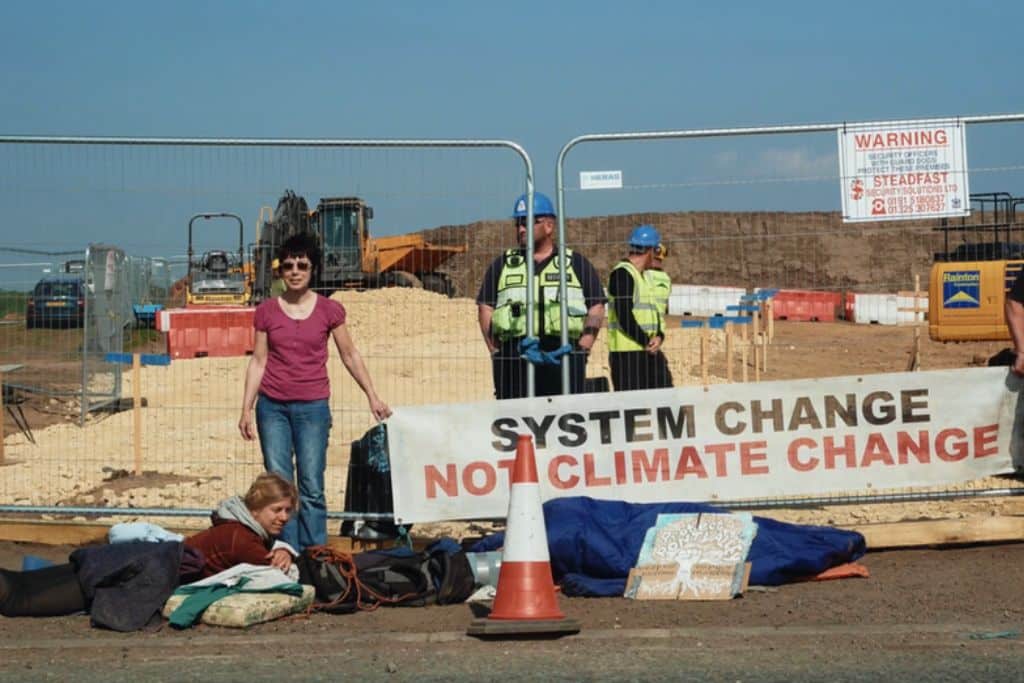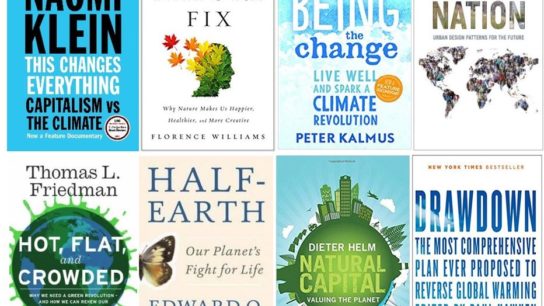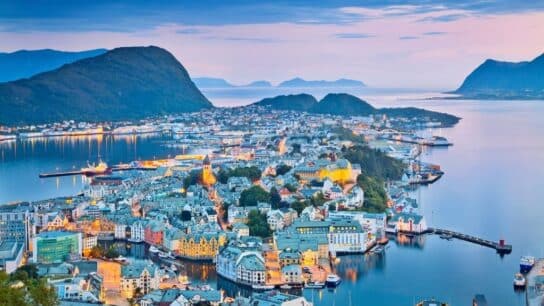The massive devastation of natural habitats is perhaps one of open-cast coal mining’s most striking consequences. Large tracts of land must be cleared as part of the process, uprooting complex ecosystems. Such a drastic loss of biodiversity directly threatens several species due to the disappearance of topsoil and vegetation. Moreover, the large volume of greenhouse gas emissions generated by burning coal for energy is a major contributor to global warming. Open-cast mining has changed the environment and left noticeable scars on the planet’s surface. A new documentary, “Finite: The Climate of Change”, focusses on two communities where local activists in the UK are making a stand against an opencast coal mine.
—
Activism Takes Centre Stage
‘Finite: The Climate of Change’ is a documentary that highlights the urgency of environmental activism. Director and producer Rich Felgate, an environmental activist himself, has been involved in campaigns against the fossil fuel industry, including shutting down the UK’s largest coal mine, Ffos-y-Fran, in Wales. The film captures the essence of direct action through the eyes of frontline communities, activists, and fossil fuel corporations, revealing the true impact of human actions on the environment and underscoring the power of collective efforts to counteract seemingly insurmountable odds.
The context of “Finite” is consistent with the ongoing battle in the UK against coal imports and exploitation, which is being fiercely fought against by organisations like the Coal Action Network. Anne Harris from Coal Action Network plays a significant role in the documentary’s emphasis on the process of bringing about climate action as an activist. By addressing the role that coal has played in steelworks, power plants, and historical consumption, they strive for justice for the affected populations in Pont Valley.
According to Felgate, the movie comes at a pivotal moment when the world is grappling with conflicting messages on coal mining and climate action. In an exclusive interview with Felgate and Harris, the discrepancy between governmental decisions and international commitments to curb global warming is discussed at length. The film offers a lens through which viewers can comprehend the complex interplay between policy, industry, and the environment.
The Unseen Face of Open-Cast Coal Mining
One of the main ways in which Felgate and Harris have been able to tackle the detriments of opencast coal mining in the UK is by targeting loopholes in legislation that can be used to make claims for the protection of ecosystems and biodiversity. The strenuous task of going through legal documents, which, as Harris explains, is “not for everyone,” gave Coal Action Network its first issue to tackle: finding Great-crested newts.
The importance of these newts, as Felgate captures in the film, is for the Coal Action Network and residents of the Pont Valley to claim the government’s biodiversity protection in the area, given the rare and endangered nature of this animal. Upon claiming protection, it was deemed that there was no population of great crested newt in the area. However, according to Harris “you will not find it if you don’t look for it.”
Due to the discrepancies in diligence on the government’s processes, ones that were set in place to protect biodiversity and ecosystems, Coal Action Network set out on a mission to find gold-crested newts on their own.
As the network and residents of the Pomp Valley fought tooth and nail to report their finding of a gold crested newt, the glaring gap between the government’s claims to aid climate change through protective measures and their actual actions, started becoming more and more evident.
One such shortcoming in the government’s approach, as pointed out by Harris, has been the Section 106 Agreement. Under this section, coal mines are given rules and regulations on the ways in which they can and cannot operate in order to protect residents of the area. However, a violation of enlisted rules does not impact the company or developers in any way. “This document is meaningless”, said Harris, since the regulatory document does not hold them accountable.
After Coal Action Network’s legal team wrote a letter to the Secretary of State to ask to revoke this system, the higher courts acknowledged the loopholes in this legislation and claimed to “remake” a decision, which is yet to happen and has not seen much progress.
Through the progression of the documentary, the revelation of the system’s favouritism of developers and their lack of consistency in upholding what they set out becomes increasingly prominent. Thereby, showcasing the obstacles to succeeding in an atmosphere where environmental activists are disadvantaged.
The 21 Best Environmental Films of 2023New UK Coal Mine Goes in ‘Opposite Direction’ to Fight Against Climate Change, Says US Climate Envoy
Climate Action: A Melting Pot of Opinions
Contrary to sensationalised media coverage, polarised perspectives from behind the screen, and outright climate deniers, Felgate and Harris believe the cause of climate action to be a melting pot of opinions. At the very core of an individual’s disagreement with climate action, lies their “fear of feeling threatened” and the feeling of “disempowerment,” explained Felgate.
The ultimate goal of climate action is to have liveable communities for everyone. “When there are real people there, it can change attitudes and can create a community,” said Harris.
Felgate also talked about the importance of differentiating between climate deniers and people who just resent protesters. The latter is often misplaced, and thought to be an overall negation of climate change on the opposition’s end. Thus, translating itself into an environment where climate action is not as supported as it should be.
According to Harris, “most people aren’t indifferent; they are just caught up in the system and restrained by life circumstances. Regardless of the challenges that environmental activists such as Felgate and Harris face, they bring a refreshing perspective to the forefront, one that wishes to actively find common ground.
As “Finite: The Climate of Change” makes its way from theatres to screens, it forces society to face the unflinching truth of the damaging repercussions of open-cast coal mining. It serves as a tool for education, empowerment, and eventually, the creation of a sustainable future as we stand at a critical juncture in the fight against climate change.
FINITE is available to rent or buy online on Vimeo on Demand from November 30
Featured image: supplied.
You might also like: The 21 Best Environmental Films of 2023


















